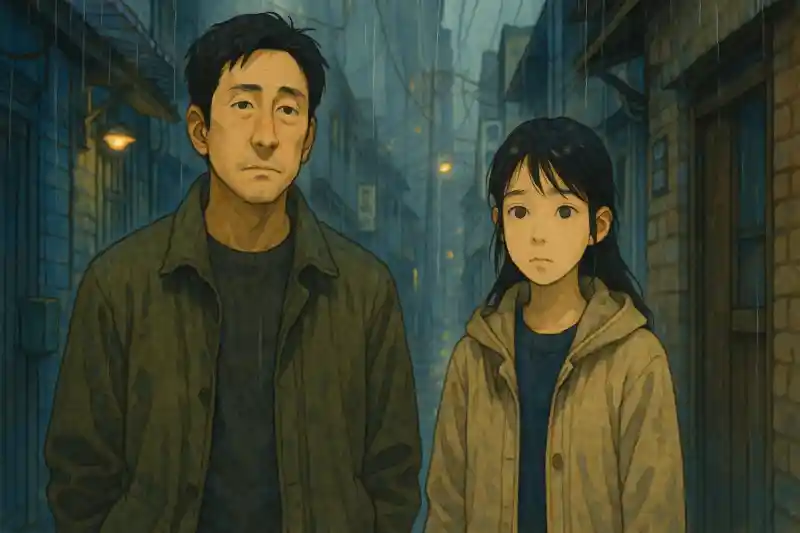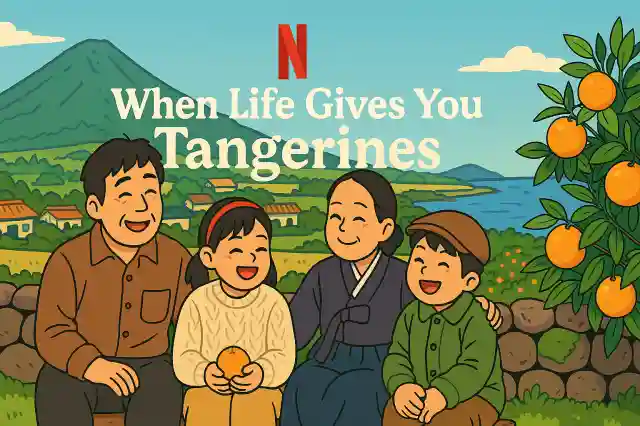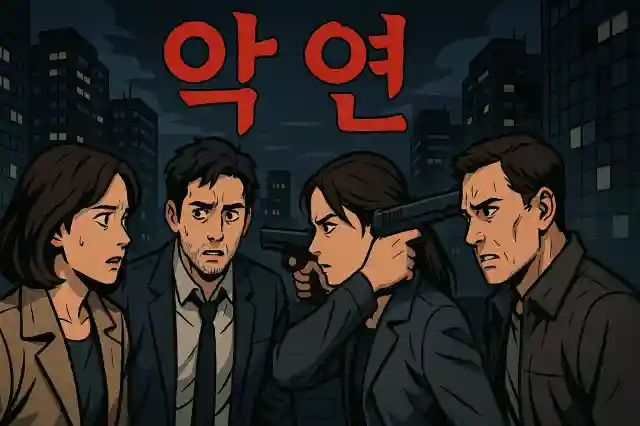My Mister: How a K-Drama Redefined Emotional Storytelling
Exploring the profound human connections and social realities in South Korea’s acclaimed 2018 drama
Hello dear readers! If you’re a fan of Korean dramas that go beyond surface-level romance and dive deep into the complexities of human emotion and societal struggles, you’re in for a treat. My Mister is a masterpiece that resonates with anyone who has faced hardship, loneliness, or the search for healing through unexpected bonds. Join me as we explore why this drama continues to captivate audiences worldwide with its raw, authentic storytelling and timeless themes.
- Social critique: Highlights workplace toxicity and class disparity in modern Korea.
- Healing through platonic bonds: Showcases emotional support beyond romance.
- Character depth: Offers nuanced portrayals of resilience amid personal and societal struggles.
- Global impact: Cultivated a dedicated international audience and inspired new K-drama narratives.
- Industry recognition: Winner of Best Drama at the 55th Baeksang Arts Awards.
Introduction
My Mister (나의 아저씨), directed by Kim Won-seok and written by Park Hae-young, is a 2018 South Korean drama that redefined emotional storytelling in the K-drama genre. It centers on the unlikely and deeply human connection between Park Dong-hoon, a weary middle-aged engineer, and Lee Ji-an, a young woman burdened by debt and hardship. Their relationship, grounded in mutual vulnerability rather than romance, offers a raw and authentic exploration of resilience, healing, and social realities.
Why My Mister Resonates Globally
At its heart, My Mister tells the story of two very different people whose lives intersect in a way that challenges conventional drama tropes. Park Dong-hoon (played by Lee Sun-kyun) is a man weighed down by family responsibilities and workplace betrayal, while Lee Ji-an (IU) is a young temp worker struggling to pay off her parents’ debts and care for her grandmother. Their bond is built on shared pain and quiet support, not romance, which sets the series apart.
- Social critique: The drama exposes workplace toxicity and class disparity, reflecting systemic issues in Korean society.
- Healing narrative: Praised at the 55th Baeksang Arts Awards for its focus on platonic solidarity as a form of redemption.
- Character depth: Dong-hoon’s midlife stagnation and Ji-an’s survival instincts offer a nuanced study of ordinary resilience.
Themes That Redefined K-Drama Storytelling
1. Class Struggle as Emotional Catalyst
Ji-an’s financial desperation, juggling multiple jobs while caring for her grandmother, sharply contrasts with Dong-hoon’s middle-class ennui. This juxtaposition highlights Korea’s widening wealth gap, a theme explored with unflinching realism by director Kim Won-seok.
2. The Ethics of Human Connection
Initially, Ji-an’s surveillance of Dong-hoon is driven by blackmail, but it evolves into a lifeline for both. This morally ambiguous relationship challenges viewers to rethink empathy’s boundaries, as analyzed by Monash University researchers.
3. Non-Romantic Healing
By avoiding clichéd romantic arcs, My Mister pioneers a narrative where emotional support transcends age and gender. This approach has influenced later “healing dramas” such as My Liberation Notes (2022).
Critical Reception and Cultural Impact
My Mister’s subdued realism earned it comparisons to literary fiction, with The Korea Herald praising its “novelistic depth.” The 16-episode format, with episodes lasting around 90 minutes, allows for gradual, in-depth character development—a rarity in fast-paced K-drama formats.
- Streaming longevity: Despite modest initial ratings, it gained a cult following on platforms like Netflix and Viki, especially among viewers aged 30–50.
- Academic interest: The series is studied in university courses for its commentary on modern alienation].
- Industry influence: Sparked a wave of character-driven dramas focusing on societal issues.
Investment Insights: The Value of Niche Storytelling
My Mister exemplifies how mature, complex narratives can be commercially viable and critically acclaimed. Key lessons for content creators include:
- Audience loyalty: Deep storytelling builds dedicated fanbases, ensuring sustained viewership.
- Global appeal: Cultural specificity, such as Korea’s corporate hierarchy, can universalize emotional themes.
- Critical acclaim: Award-winning projects boost brand prestige and attract top talent.
Why My Mister Remains Relevant in 2024
As streaming platforms increasingly prioritize diverse and meaningful narratives, My Mister stands as a blueprint for sustainable storytelling. Its unflinching exploration of systemic inequities—from workplace harassment to elder care crises—ensures it resonates in today’s post-pandemic media landscape. For viewers seeking substance over spectacle, it remains a testament to television’s power to heal, challenge, and connect.
Conclusion
My Mister is more than just a drama; it is a profound study of human connection, resilience, and the quiet struggles that define everyday life. By focusing on platonic healing and social realities, it challenges us to reconsider what stories deserve to be told and how television can foster empathy and understanding. What lessons can your favorite dramas learn from My Mister’s approach to storytelling?
For further exploration of related themes, check out our in-depth K-Drama Tangerines Review and the character-driven Karma Crime Thriller Analysis.


